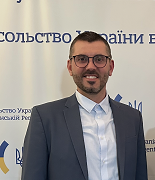

|
Thu24 Jul09:00am(90 mins)
|
Where:
417
Panelist:
Panelist:
Panelist:
Panelist:
Panelist:
|


Does the Russo-Ukrainian war (2014 – ) indicate the triumph of 'great power politics' and the 'return of geopolitics' as the primary cleavage in world politics, or its crisis? Many scholars, especially in the field of International Relations (IR), take it for granted that great power politics and geopolitics are 'back'. This line of reasoning views the world through the lens of such 'great powers', and includes only a notion of local actors and agents constrained to their 'spheres of influence'. Yet, Russia's full-scale invasion of Ukraine in 2022 and its aftermath have made visible the importance of manifestations of local agents, states and non-state actors in relation to Russia and the conditions of fragmentation. However, these observations have not been conceptualised, empirically explored and comprehensively analysed in the social sciences and humanities. In response to these research challenges, the contributions to this roundtable start from two common assumptions: The first is that power is becoming more diffuse among a wider range of actors, networks and geopolitical actors. The second is that this process of fragmentation can be compellingly analysed from the perspective of local actors and conditions, and their complex interaction with regional and global structures, processes, institutions and transnational networks. The roundtable will explore and critically discuss how locality, 'geopolitical entrepreneurs' and dispersed networks that traverse borders are critical to the emerging logics of 21st century power politics. We will argue for the need for a new programme of research that explicitly focuses on the interactions between local actors and conditions on the one hand, and the regional and global levels on the other.
The roundtable discussion will address questions such as:
Why, how, by which actors and through which contextual conditions do local agencies in the so-called post-Soviet space shape the regional and global process of fragmentation?
What is the role of local and regional 'bottom-up' agencies in relation to Russia's role in the so-called post-Soviet region, and what is their impact on global and regional geopolitics, and how do they shape fragmentation?
How do local conditions and actors interact with processes of global transformation and fragmentation - geopolitical, economic, informational, social and cultural - and how do they shape new forms of communication?
How is 'peace' understood and (re)framed in these fragmented regional and global orders, how is 'peace' narrated and understood by different actors, and how do relations with Russia shape these narratives?